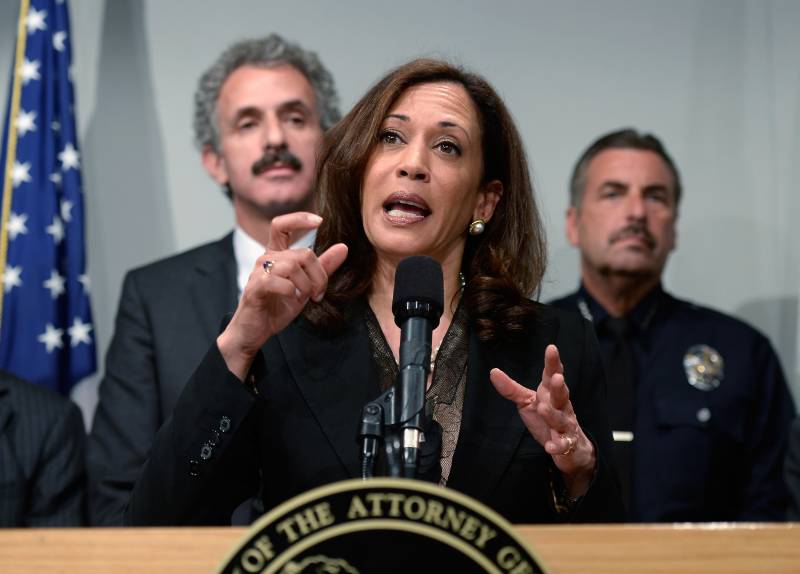Mesloh said Harris has had to absorb throughout her career “subtle and not so subtle messages that were sent to her of, you know, ‘Who do you think you are? You need to know your place. You know, you may have won an election, but there’s only one of you. We outnumber you.’ ”
Mesloh said Harris never let those messages intimidate her.
Wanting a Seat at the Table
Suzy Loftus, who worked under Harris as both a deputy district attorney and assistant attorney general, said the conviction was important to Harris — and consistent with her principles. And, she said, Harris learned from the Espinoza case.
“She made the decision quickly, announced it quickly and recognized later that there were so many people who were so deeply impacted in that moment and in grief and in pain. And that loss was exacerbated by an announcement in the middle of it. So I think she endeavored to learn from her mistakes,” Loftus said.
But, Loftus insists, it didn’t make Harris a different or more cautious politician.
“I think by function of being a prosecutor, you’re more careful,” she said.
Jim Stearns, who ran Harris’ first campaign, added that while the Espinoza decision soured some in law enforcement on Harris at the time, it also won over many voters, making her something of a political star in San Francisco.
“I think what galvanized the city for her was this was the first time people could remember that a politician made a difficult promise, like, ‘I will never enforce the death penalty,’ and actually did it under the most incredible pressure,” he said.
Stearns said there’s been a tension throughout Harris’ career: between what’s expected of her as a member of law enforcement and what’s been asked of her by progressive activists who see her as an ally.
“Kamala has always wanted to have a seat at the table,” Stearns said. “So it would be a mistake to see Kamala or to expect from Kamala that she is ever going to stand outside of the system and demand the kind of wholesale changes that people who stand out of the system want.”
That tension would play out most dramatically when Harris took on her next job, as attorney general of the state of California.
‘Someone Who’s Been So Vilified’
In 2010, Harris won the narrowest of victories to become California’s first female and first Black attorney general.
It was a tough race. Law enforcement unions had overwhelmingly backed Harris’ opponent, Los Angeles’ Republican district attorney, Steve Cooley, who used those endorsements to paint Harris as anti-police.
To build relationships with local prosecutors, sheriffs and police, the first thing Harris did as attorney general was visit all 58 California counties. Loftus, her longtime deputy, planned the tour.
“It was incredibly effective because I think there’s nothing like actually getting to talk to someone — especially who’s been so vilified,” Loftus said.

